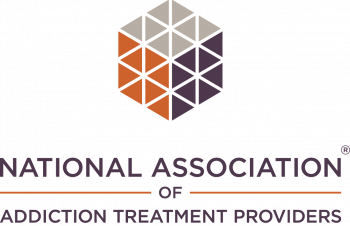The purpose of National Recovery Month is to create more awareness about addiction recovery and to celebrate those in recovery from mental health issues and substance use disorders. During the month of September, addiction treatment centers in Maryland often schedule events as a way of garnering public support for addiction treatment and recovery.
The event is sponsored by the Substance Abuse and Mental Health Services Administration (SAMHSA) and supported by numerous government agencies, community organizations, and treatment centers around the country. Due to the efforts of SAMHSA and others, millions of people have recovered from addiction and are living happier, healthier lives.
You may be wondering what happens during September to promote drug addiction recovery or alcohol addiction recovery. Learn more about how to get involved and contact an addiction treatment center near you today.
National Recovery Month’s Purpose
Education
Addiction often happens as a result of a lack of education or resources about the problem. Many people who suffer from addiction do not understand the connection between addiction and other problems in their life. During September, organizations band together to create more awareness through education and resources. The more people know the more equipped they are to help others find alcohol addiction recovery.
Community Events
People across the country coordinate community events that range from fundraisers to large celebrations. Support groups and 12-step programs have been instrumental in the past in planning and participating in all types of community events that are both fun and meaningful.
Volunteers
Alcohol addiction treatment centers and other organizations that are associated with drug addiction recovery are always looking for volunteers to help out in various ways. Volunteers provide support by helping to maintain facilities, working with people in recovery, planning projects, and creating more awareness about drug addiction recovery.
Resources
National Recovery Month gives individuals, groups, and organizations access to a variety of resources that they can use to promote the occasions. Resources include public service announcements, ads, t-shirts, posters, flyers, banners, and other materials. Many of these resources are free and available for widespread use.
The History of National Recovery Month
For over 30 years, SAMHSA has used the month of September to inspire millions of people to raise awareness about drug and alcohol addiction. It has become a platform for people to share their stories of recovery and encourage others to do the same. Each year, the events and support continue to grow.
Recovery month was started in 1989 under the title Treatment Works! It was designed to honor professionals in outpatient treatment programs. The name was changed to National Alcohol and Drug Addiction Recovery Month in 1998. The focus was also expanded to highlight those who are in recovery from addiction. In 2011, the focus was again expanded to include individuals who are struggling with mental illness.
Since its beginning in 1998, National Recovery Month has gathered support from over 200, federal, state, and private entities, including nonprofit organizations, community organizations, and corporations.
How to Participate in National Recovery Month
If you would like to get involved in National Recovery Month, you may want to start by visiting the SAMHSA website. There you can find information, such as:
- Current news
- Contact information including social media sites
- Promotional materials
- Event calendar
- Recovery stories
- Access to recovery resources
You can also visit your local addiction treatment center in Maryland to find out more about what you can do to volunteer during the month of September.
Learn More About Drug Addiction Recovery at TruHealing Gaithersburg
If you would like to learn more about National Recovery Month and addiction, then contact TruHealing Gaithersburg. We offer comprehensive addiction treatment therapies for all types of addiction. Contact TruHealing Gaithersburg at (833) 625-0398 to find out more about your treatment options.









